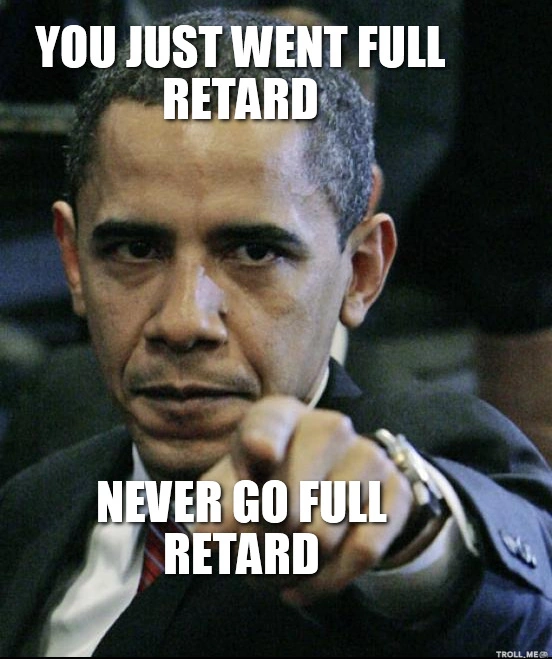'Nikolai', thank you for a thoughtful and intelligent response. It is much appreciated.
First point of disagreement here - greed is not necessarily the same thing as self interest. You and I will both agree that unfettered pursuit of selfish ends is not a good thing. But where the leftist makes government the primary restrainer, classic capitalism leaves it largely to other individuals who have similar motivations. Unless all individuals have the same motivation for the same individual (in other words, "me" means a different individual depending on who is saying it), they will be restrained by competition within the market.
This is true in theory, but unfortunately, not in practice.
Where it is true is in regard to "luxury" markets, where one can simply refuse to participate in the commerce when greed (unfettered self-interest) creates an exploitive trade environment. But unfortunately, as our society has become intensely specialized and it's members nearly totally inter-dependent, most of the commercial markets that we engage in are no longer this kind of 'free market'. Because we no longer have the ability to simply refuse to participate in them when they become exploitive. (Think energy, transportation, health care, communications, pharmaceuticals, insurance, and on and on.)
What we live in now, almost entirely, is a collection of 'captive markets' that we must participate in to survive. We can no longer build our own homes, grow or hunt our own foods, create our own clothing, raise up our own means of transportation, build our own communication networks, cure our own illnesses, etc.,. We are now dependent upon the products of others, obtained through these 'captive markets', for nearly every necessity of life. And because of that dependence, those captive markets work differently than free markets. As the natural restraints on greed and the exploitation that it causes are eliminated by our necessity.
If in these new captive markets, the organized greed of capitalism is no longer being restrained, exploitation inevitably results.
Just as an example: two businesses sell lamp oil to community "X". And both businesses know that everyone in community X must buy lamp oil. They also know that if they compete with each other, they will drive each other's prices down. But if they do not compete with each other, they can both edge each other's prices up until they reach the point of maximum economic tolerance. And since both businesses would rather sell less oil for more money, than sell more oil for less money, they don't need to meet in some back room to price-fix (which is illegal) to mutually agree to raise their prices. Their mutual greed creates that agreement, automatically. Even though they know that as the price of their oil goes up, the demand will drop, somewhat, because people will try to conserve.
My point is that captive markets do not self-regulate in favor of the consumer. And most modern commercial markets are now captive markets. Thus, they must be limited/regulated by some other means. And the only other means we have is organized governmental oversight.
The issue here, however, is moral.
I disagree. It is 'moral' only to the degree that one believes people should not be exploited and caused to suffer so that others can profit. There are many who do not believe this. But more importantly, it's an issue of both social function and rationality. In a system that allows (and fosters) unchecked greed, the most aggressive and ruthless of the greedy will exploit everyone else for their own insatiable gain. That creates an inherently unstable society that's very bad for nearly everyone; even those on top. Unchecked greed is not only a moral problem, it's a socially catastrophic functional problem. And as such, it's irrational for a society to engage in it. As it's inherently self-destructive.
All the factors you mention are not independent. And government is notoriously bad at looking after society's well being (save for enforcing justice upon criminal activities).
This simply is not in evidence. Our government controls commerce to a greater degree than probably any government that has ever existed, in history, and the result of all that control is that we have greater food safety, cleaner water, cleaner air, cleaner streets, better health care, safer housing, excellent emergency response, reasonably just courts, and on and on and on … then at any time in human history. I know we all love to disparage the government, but we are not being realistic in doing so. All those oversight agencies that we so love to hate have actually made our lives many times cleaner, safer, and happier than ever before. The problem is NOT government oversight. The problem is the corruption of government oversight by moneyed special interests, and general stupidity.
People (and societies) don't generally do well when they are micromanaged. Businesses are not there to promote the honesty or effectiveness of a central government, either. And the lives of the people involved? Any good business will realize that its employees are the lifeblood of its success - or they will ultimately fail.
Sadly, no, they won't. The fact is that captive markets reward greed, and the capitalist system places all the decision-making power in the hands of the capital investors, which also empowers their greed. And as the greedy pile up more and more wealth at the expense of everyone else, the whole system becomes unstable, and eventually collapses.
Our greed must be kept in check if we wish to maintain a healthy, stable society, and that necessity is antithetical to the goal and function of the capitalist system. To put it succinctly; capitalism is a socially toxic economic system. It only works when the participants don't have to participate in it's commercial activities. And that is no longer the case in our modern societies.

